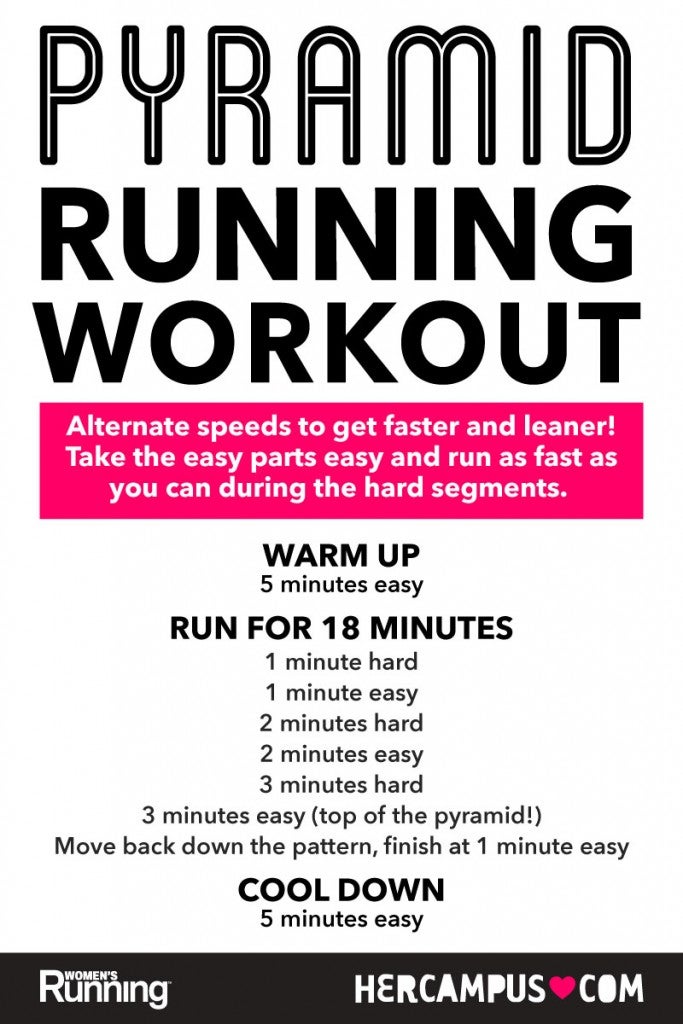Getting Rid Of Pain in Operating: Techniques and Methods That Job
Pain is an usual companion for several joggers, frequently acting as a barrier to achieving their preferred objectives. Nevertheless, with the right strategies and strategies, it is possible to get rid of and also prevent the discomfort connected with running. By discovering different methods such as comprehending the various sorts of running pain, enhancing shoes and type, incorporating cross-training and stamina workouts, executing efficient recovery approaches, and maintaining proper nutrition and hydration, joggers can potentially ease their discomfort and improve their general running experience.
Understanding Various Sorts Of Running Discomfort

An additional kind of running pain is joint discomfort, which can show up as a sharp or throbbing pain in areas such as the knees, hips, or ankle joints (running workout). Joint pain might be triggered by variables like improper running type, overuse, or underlying problems like joint inflammation (great tips). It is essential to distinguish between muscular tissue soreness and joint discomfort, as the latter might require medical interest to stop more injury
Understanding the different sorts of running discomfort is essential for effective monitoring and avoidance strategies to guarantee a safe and satisfying running experience.
Correct Shoes and Running Form
To optimize efficiency and minimize the threat of running-related injuries, picking ideal footwear and preserving proper running form are necessary components for joggers of all degrees. It is advised to pick running footwear that are specifically developed for the person's foot kind, running stride, and the kind of running activity they involve in.

Cross-Training and Strength Workouts
Stamina workouts, like squats, lunges, and core exercises, play a critical duty in maintaining muscle mass and enhancing running performance. They can deal with muscle mass discrepancies, boost dexterity, and enhance power output, all of which are necessary for running efficiency.
Incorporating cross-training and toughness exercises into a running program must be done tactically. It is very important to enable for ample remainder in between running sessions and cross-training activities to avoid overuse injuries. Furthermore, concentrating on proper type and strategy during toughness exercises is key to maximizing their benefits and lowering the risk of injury. By including these elements into a running regimen, joggers can construct a more powerful structure, improve performance, and delight in a more sustainable running experience.
Recuperation and Relax Techniques
Having developed the importance of cross-training and strength exercises in a detailed running regimen, attention can now be guided in the direction of Recovery and Relax Methods as important elements for enhancing efficiency and decreasing the risk of injuries. (running workout)
Healing after running is vital for muscle mass repair service and development. Methods such as foam rolling, stretching, and massage therapy help in decreasing muscular tissue pain and enhancing versatility. Ample rest in between runs allows the body to recuperate and adapt to the physical stress and anxiety, stopping overuse injuries.
Incorporating energetic recovery days into a training routine, where low-intensity tasks like walking or cycling are carried out, can enhance blood flow and advertise healing without putting excess strain on the muscular tissues. In addition, appropriate hydration and nourishment play an important duty in the healing procedure by renewing shed fluids and nutrients.
Quality rest is another important element of healing that must not be neglected. Throughout rest, the body goes through repair service and regrowth processes, adding to overall physical and mental well-being. By prioritizing recovery and rest strategies, joggers can maintain optimal performance degrees and lower the chance of experiencing discomfort or injuries.
Nutrition and Hydration for Runners
Just how can joggers maximize their efficiency with proper nourishment and hydration techniques? Nourishment and hydration are essential elements of a runner's training regimen, playing a crucial duty in efficiency, endurance, and recuperation. To boost efficiency, runners need to concentrate on consuming a well-balanced diet regimen that includes carbohydrates, proteins, healthy and balanced fats, vitamins, and minerals. Carbs provide power for running, while proteins help in muscle mass repair and recuperation. Healthy fats sustain general health and wellness and help in absorbing essential nutrients. Appropriate hydration is more info additionally vital to preserve optimum performance, as also light dehydration can negatively influence running performance. Joggers must consume water prior to, throughout, and after their go to remain hydrated. Electrolytes, such as sodium and potassium, are also crucial for preserving fluid balance and muscle mass feature - running workout. Additionally, timing meals and snacks appropriately before runs can assist avoid gastrointestinal pain and give the essential power for peak performance. By focusing on their nutrition and hydration, joggers can boost their endurance, accelerate recovery, and carry out at their finest.
Verdict
Finally, by comprehending the numerous sorts of running discomfort, using proper footwear, keeping correct running form, including cross-training and strength workouts, focusing on healing and remainder, and focusing on nutrition and hydration, runners can effectively overcome pain and enhance their performance. Implementing these methods and techniques can aid joggers stop injuries, boost their endurance, and eventually delight in a much more satisfying running experience.